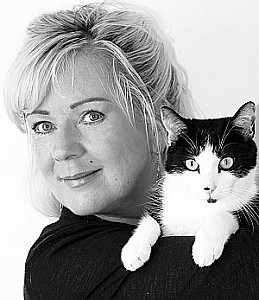Save the Bees
Description
Vocal Characteristics
Language
EnglishVoice Age
Middle Aged (35-54)Accents
British (General) British (Received Pronunciation - RP, BBC)Transcript
Note: Transcripts are generated using speech recognition software and may contain errors.
I wonder where we will be when you read this, as I write were still under full lock down, and I'm watching large, fluffy clouds rolled by in the stream of an easterly wind that brings a chilly edge to a mayday. I'm sitting here occasionally looking at a Twitter feed from my mate in the Northeast who is organising a lock down garden Bird Watch, which is gathering a lot of support liked on Retweeted by Chris Pack of no less vote. As interesting and challenging as that will be, I can't help but think how much better it would be to actually be able to get out into the wider countryside and see all those lovely spring migrants that usually appear on the annual checklist. Such frustration. It is, however, quite comforting to be able to keep in touch with wildlife sightings, news, family and friends. By the wonders of modern technology, social media gets a lot of bad press, but in these days of social distancing, it helps to bring us all closer. Various groups have been set up where by like minded people can update one another on what they have seen on their daily walks or in their gardens. It helps greatly to feel part of a family, and I'm sure, has become a crucial part of life for some. Speaking of gardens, it is calculated that the total area covered by private gardens is something like 660,000 acres across the country, an area larger than most nature reserves stitched together. It is a tremendous resource, and when we're now able to enjoy to the full following my own advice from last month's article to make my garden more wildlife friendly, I've built a rough and ready be hotel, and so far I've not witnessed any solitary bees inspecting the crammed mass of bamboo canes. But I have seen many small bees around the garden, so now they are present, have a rampage, and you will see them, too. Now, this itself has led to an interesting diversion of trying to identify. The little blighter is I mean, who knew there were something like 270 species of bee in the UK and only a small proportion of the familiar bumble bee types. We have mason, these mining bees, bloody bees, leaf cutter bees, nomad bees on even boobies that behave very much like the avian namesake. The female cookie be will detect an active miss chamber off a host species and lay its own egg. Therein the host will also land. But thiss all the emergent grub is doomed to be easing by the cookie bee larvae. The more you delve into these things, the more fascinating it becomes. And I'm only doing this because my naturalistic one drinks are now confined to a very small area. It will be very interesting to see how our local records made during this period will enhance nay, fundamentally change the perceived abundance on distribution of species. People are noticing things, possibly for the first time in their lives. Another potentially exciting aspect of much decreased human activity is the way in which animals seem to be changing their behaviour. You've probably read reports of deer sightings within suburbia, but it spreads wider than that. For instance, breeding birds such as wages and turns will benefit from much less disturbance on our beaches and marshland, and it may well be that other species have a bumper breeding season without constant disturbance by man and dogs. Decreased road traffic may result in fewer animal deaths. But should creatures get too used to quite a raid that could rebound disastrously once things return to normal, However, the most amazing instance I've come across of adaptations in World Creatures is of a trio of Andean condors that now regularly risen. Visit the balcony off a high rise apartment at a town in Chile. Empty streets mean no discarded rubbish and scraps that normally provide these huge birds with the living. The apartment owner puts food out on my balcony on DH. Hey Presti, three of the world's most impressive birds, feasting within touching distance. They do seem to look like the look of her poodles, but I'm sure that's just coincidence. Inevitably, though, this current locked him will bring many hardships. Sadly, one such is our local wildlife trusts. But the good news is that you can use the current situation on your imagination to help by taking part in the 2.6 wildlife challenge. Essentially, you have to think of a task you can perform that revolves around the number 2.6 or 26 the significance of this number linked to the mileage off the Virgin Money London Marathon, which, of course, was cancelled. You raise money while performing your chosen task. Full details can be found on the website of your local wildlife trust. It's a great way to engage yourself your family in a positive activity to help our wildlife.
